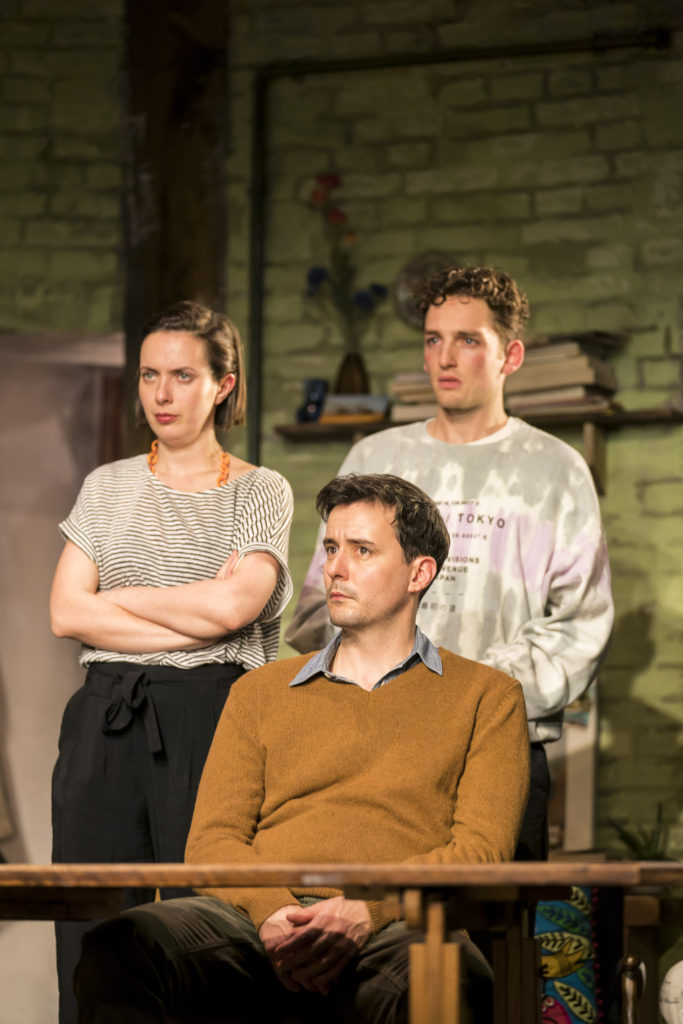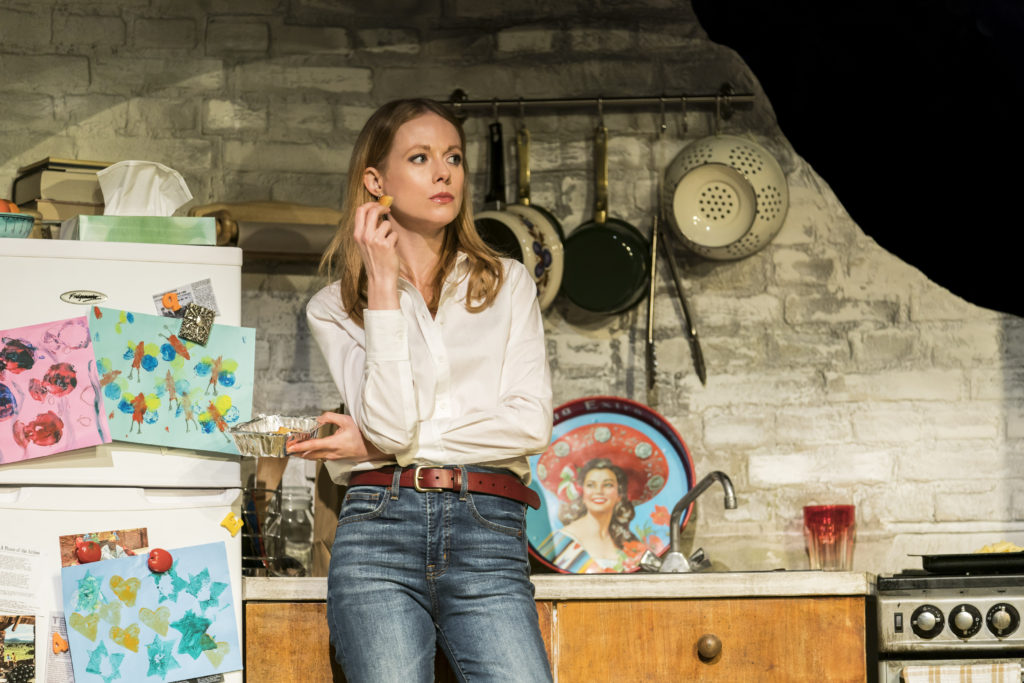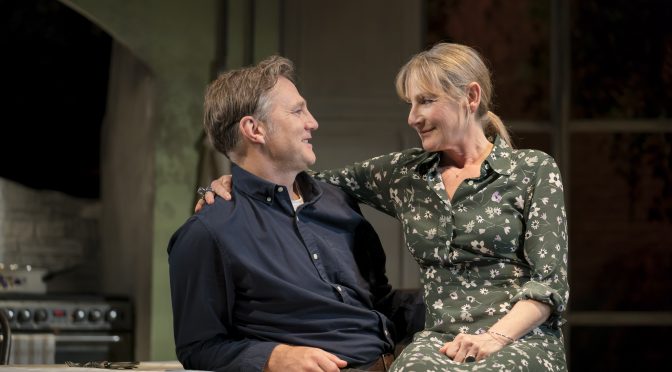Jack Thorne’s new play is a somewhat traditional affair, and far less tricky than many seen at this venue. But the Royal Court embraces all kinds of writing and, while this family drama may seem superficially simple (low stakes, even), it’s a piece of great skill that raises interesting questions and leads to fantastic performances.
The play’s focus is Sal, a left-wing school teacher who talks too much but always means well. Thorne has created an idealised figure – for all her oversharing and eccentricity it’s surely impossible not to like her. And taking what must be a dream role, the always excellent Lesley Sharp delivers every line to perfection. With the help of John Tiffany’s direction, her scenes become very funny indeed. I don’t know who, if anyone, Sharp and Thorne had in mind when working on Sal, but the character and depiction is one of great tenderness and humanity.
Sal’s husband David is just as much the firebrand, but with a crueller edge that David Morrissey handles impeccably. He’s a mix of anger and frustration, ever keen to lecture, which creates surprising tension. All the cast impresses as the play’s three acts cover three decades, but Morrissey shows us his character ageing in a profound and moving manner. And the passage of time is a triumph for Tiffany, too, as choreographed scenes between acts highlight the mundanities of family life and emotions are glimpsed as the years pass by on a calendar.

As for the couple’s children, each character and performance is wonderfully detailed. Kate O’Flynn, Sam Swainsbury and Laurie Davidson show the nuances of their characters at different ages and the complexities of sibling rivalry. The one person who marries into the family makes a final great role for Zoe Boyle, who segues from an embarrassed guest meeting her in-laws for the first time to becoming thoroughly sick of them all. It’s notable how vulnerable all the younger characters are, arguably, in some cases, a little catastrophising. But their problems convince as well as providing plenty of laughs along the way.

The End of History isn’t all funny. Each act contains a dramatic bombshell delivered with a deceptively light touch. In its structure and intelligence, the piece is reminiscent of David Hare’s Amy’s View, carefully refocused and with Thorne’s distinctive sense of humour. Convictions here are often a source of fun – from awkwardness to incredulity – but they are also ideas put into practice. Socialists like these are literally a dying breed, hence the title reference to Francis Fukuyama’s book. And their extreme ideas about inherited wealth may say more about our society than their logic – it certainly shocked some of my fellow theatregoers. Presenting Sal and David as figures from the past, with a fragile legacy, leads to a melancholy finale. But getting to know both, which Thorne allows us to do with such skill, gives this understated play its power.
Until 10 August 2019
Photos by to Johan Persson

